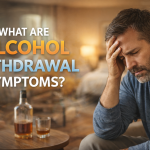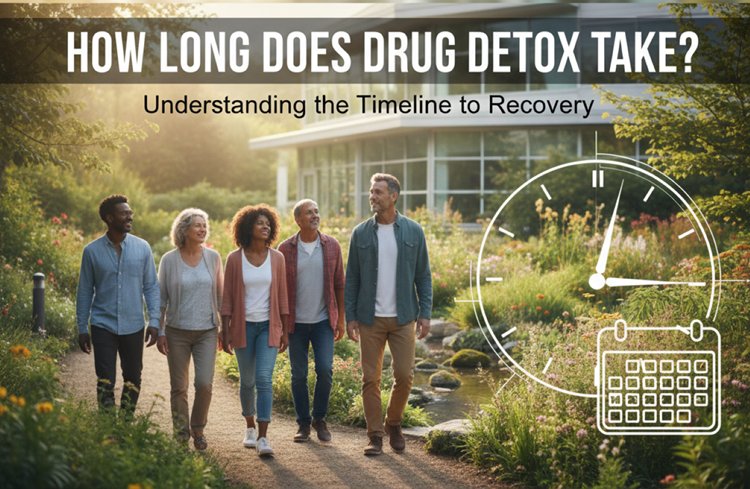Have you had unusual responses to drinking alcohol lately, (like flushed skin, nausea, or splitting headache) even though in the past you hadn’t? In that case you might be dealing with sudden-onset alcohol intolerance. Contrary to regular hangovers or overindulgence, alcohol intolerance results in uncomfortable and instant effects that confuse people. There is a necessity to learn more about this condition, its causes, and ways of treatment, especially when it begins to influence lifestyle or health.
So, what is alcohol intolerance, and how to treat it before it grows into a larger case? Let us take a little deeper look.
What is Sudden Onset Alcohol Intolerance?
Alcohol intolerance is when your body is not good at processing alcohol, thus you experience unpleasant symptoms even after having just a few drinks. Whereas some people are born predisposed to alcohol, others might develop the problem out of the blue, later in life.
Abrupt-onset alcohol intolerance refers to the event where unpleasant reactions arise unexpectedly in people who were used to tolerating alcohol without any problem. What is going on here is not simply the process of ageing or taking more alcohol. It can either be an indication of a more serious problem with the way your body tolerates alcohol or a health condition.
Common Intolerance Alcohol Symptoms:
- Facial flushing or redness
- Headaches or migraines shortly after drinking
- Nausea or vomiting
- Rapid heartbeat or palpitations
- Nasal congestion or a runny nose
- Low blood pressure or dizziness
- Digestive discomfort like bloating or diarrhea
Such symptoms tend to be rapid, occurring in minutes to several hours, and tend to be mistaken as either an allergy to alcohol or drinking too much.
What are the Causes of the Sudden Onset of Alcohol Intolerance?
It is imperative to know why a person has alcohol intolerance so that this condition can be treated. Although the symptoms are rather unusual to have a sudden sensitivity to alcohol, several contributing factors might be involved.
1. Enzyme Deficiency
One of the most prominent is a lack of an enzyme that is known as aldehyde dehydrogenase 2 (ALDH2). The enzyme assists in the process of degradation of acetaldehyde, which is another alcoholic byproduct. In its absence, the accumulation of acetaldehyde in the organism leads to such symptoms as flushing and nausea.
Others have been born with this condition and others may develop their enzyme deficiency later on in life because of:
Aging
Liver damage
2. Changes in Gut Health
A change in your intestinal flora may alter the way your organism processes alcohol. Abnormal growth of unhealthy bacteria or yeast (such as Candida) may cause the development of alcohol sensitivity. Some ingestive-related conditions can also be the cause, like the leaky gut syndrome, Crohn’s disease, or celiac disease.
3. Medication Interactions
There are several prescription or over-the-counter drugs which can disrupt the alcohol metabolizing reaction. These include:
- Antibiotics (e.g., metronidazole)
- Antidepressants
- Antihistamines
- Diabetes medications
When taken with alcohol, they can produce symptoms of alcohol intolerance immediately.
4. Underlying Medical Conditions
An unexpected alcohol intolerance can also be a warning of other unacknowledged diseases, including:
- Liver disease (e.g., hepatitis, cirrhosis)
- Pancreatitis
- Histamine intolerance
- Mast cell activation syndrome (MCAS)
5. Hormonal Imbalances or Aging
Alcohol tolerance may diminish with age related to the changes in hormones caused by aging and the decreased metabolism. Women passing through perimenopause or menopause, as example, usually complain of being more sensitive to drinking.
Is Alcohol Intolerance the Same Thing as an Alcohol Allergy?
Alcohol intolerance is, however, not equivalent of an alcohol allergy, though they have some common symptoms.
Alcohol Intolerance:
- Brought about by the inability to break down alcohol or the components of alcohol
- The symptoms are not life-threatening but they are uncomfortable
- Contains flushing, nausea, quickening of the heartbeats
Alcohol Allergy:
- It is brought about as a reaction to certain components of alcoholic drinks by the immune system (e.g. wheat, barley, sulfites)
- May be life-threatening (anaphylaxis)
- Incorporates itching, swelling, difficulties in breath, rash, and hives
In case you have experienced such symptoms as a swelling of the face, shortness of breath, or hives, cease drinking and visit an allergist. Two may be differentiated with the help of a formal alcohol intolerance test.
Treatment Options for Sudden Onset Alcohol Intolerance
There’s no one-size-fits-all treatment, but several approaches can help you manage or even reverse alcohol intolerance depending on its cause.
1. Identify and Eliminate Triggers
Monitor the way you respond to various drinking beverages. It could be a response to some additives, preservatives (like sulfites) or beer ingredients like gluten or red wine ingredients like histamines.
2. Consult a Medical Professional
The assessment can be done by a primary care physician, allergist, and gastroenterologist to eliminate severe health problems. You can experience:
- Liver function tests
- Histamine intolerance tests
- Gut microbiome analysis
- Alcohol intolerance testing
3. Modify Your Alcohol Consumption
In cases where the symptoms are mild, some individuals opt to a reduction in their consumption or they switch to low-histamine or clear liquors like vodka or gin, which could be better tolerated. The best course of action, though, is usually abstinence.
4. Address Underlying Health Issues
In case the presence of alcohol intolerance can be explained by another disease (liver disease, gut dysbiosis, or histamine intolerance), the sensitivity can diminish with time by treating the underlying disease.
5. Consider Alcohol Addiction Treatment
In cases where a person drinks even when he is not feeling well or when his body has already developed an addiction to alcohol, this is when one can take action. Intolerance of alcohol and the persistence of drinking may lead to long-term health problems of long-term complications.
At Palm Coast Treatment Solutions, we offer you individualized recovery plans, treating you both physically and emotionally. You may require detoxing, counseling, or a full-fledged treatment plan and our team of experts will take care of it.
Final Thoughts on Sudden-Onset Alcohol Intolerance
The onset of alcohol intolerance may come quickly and be puzzling or irritating, particularly when you have been drinking with friends and foes unproblematically all these years. However, your body may be attempting to tell of something you should hear.
These symptoms cannot be overlooked, especially when it is caused of enzyme deficiencies, problems in the gut, medication reasons or a more severe type of disease, such as liver disease. The most important thing is to detect the cause at the initial stages and discuss the options of treatment so that your overall state will be enhanced.

When alcohol starts having a negative toll on your life, just have this in mind: you do not have to confront it alone. There is professional help, and recovery is possible.
Ready to Take the Next Step?
Palm Coast Treatment Solutions is a dedicated, evidence-based alcohol treatment facility that targets not only the symptoms but the cause of the problem. Our compassionate staff can provide you with an entire spectrum of treatments, including detox through outpatient care to suit your own individual needs. Call us today at (386) 284-4151 to learn more about our confidential consultation.






















